Food is the best sensorial representation of our circumstances, culture and background. It is through food that communities and their untold histories are shared with the rest of the world. To Tarek Daka, introducing Manhattan to Palestinian cuisine through Qanoon, one of Chelsea’s newest and most popular restaurants, is a labor of love and an ode to his roots and family.
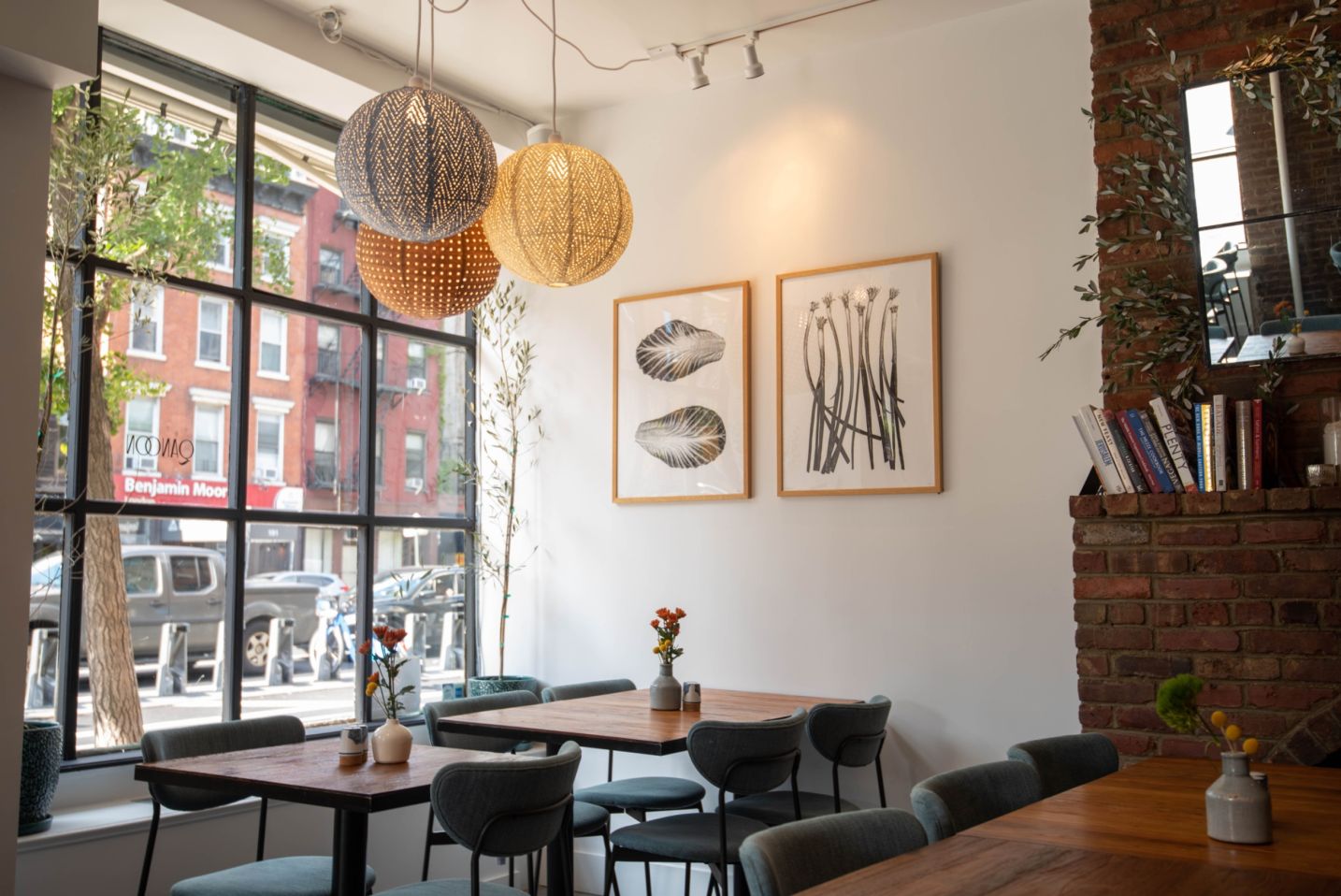
“I grew up in a Palestinian town in Israel, the youngest of nine siblings. Though our circumstances were humble, we were always well nourished in body and soul. The secret of our family[‘s] wellbeing lies in my mother, Rasmyee, and her cooking. My mother is a true celebration of the culture of Palestine, our love for food, and taking care of the people around you. She shaped my palette,” he once wrote of his earliest culinary memories.
Founded last year, Qanoon—which gets its name from the Palestinian term for grill and its homonym Qanun, a Middle Eastern string instrument—is one of the few Palestinian-owned restaurants in New York City and by far the most successful owing to Daka’s background in business and finance and previous ventures in the restaurant business, including Pastai, a charming Sicilian eatery on Ninth Avenue.
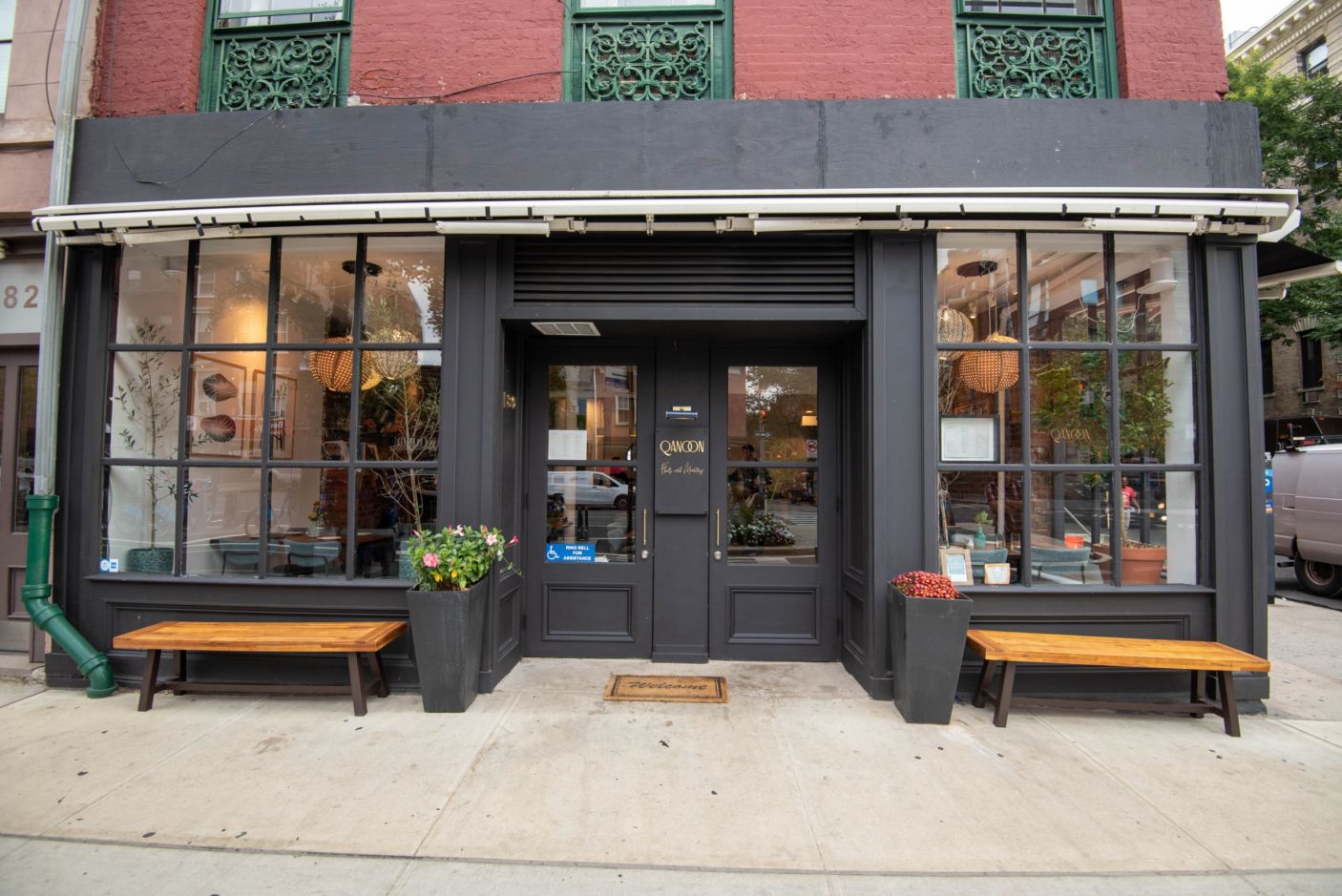
“Becoming a chef meant connecting my mother’s food and my culture with my great
knack in reading numbers and running business,” the Hebrew University graduate tells Egyptian Streets.
As Qanoon’s head chef and founder, Daka has imbued every aspect of the restaurant with Palestinian and Arab culture, from the music, to the overall cozy Mediterranean ambiance.
“Just like the food—traditional recipes with a modern twist, the playlist has an array of classical songs from all over the Arab world that are recreated by new indie bands based in Jordan, Lebanon, Palestine, Sudan, and many [other countries]. We [also] love to celebrate new Middle Eastern artists that come up with original lyrics and beats, and that is why we play [their songs] here in Qanoon,” he explains.
Nicknamed the “guy with the golden fingers” by his family and friends, Daka’s unique ability to preserve the character of his native cuisine, while also maintaining a level of universality to the culinary concept—from a stellar selection of wines and spirits, to locally sourced ingredients from the Union Square Greenmarket—makes Qanoon New York’s finest Palestinian restaurant.
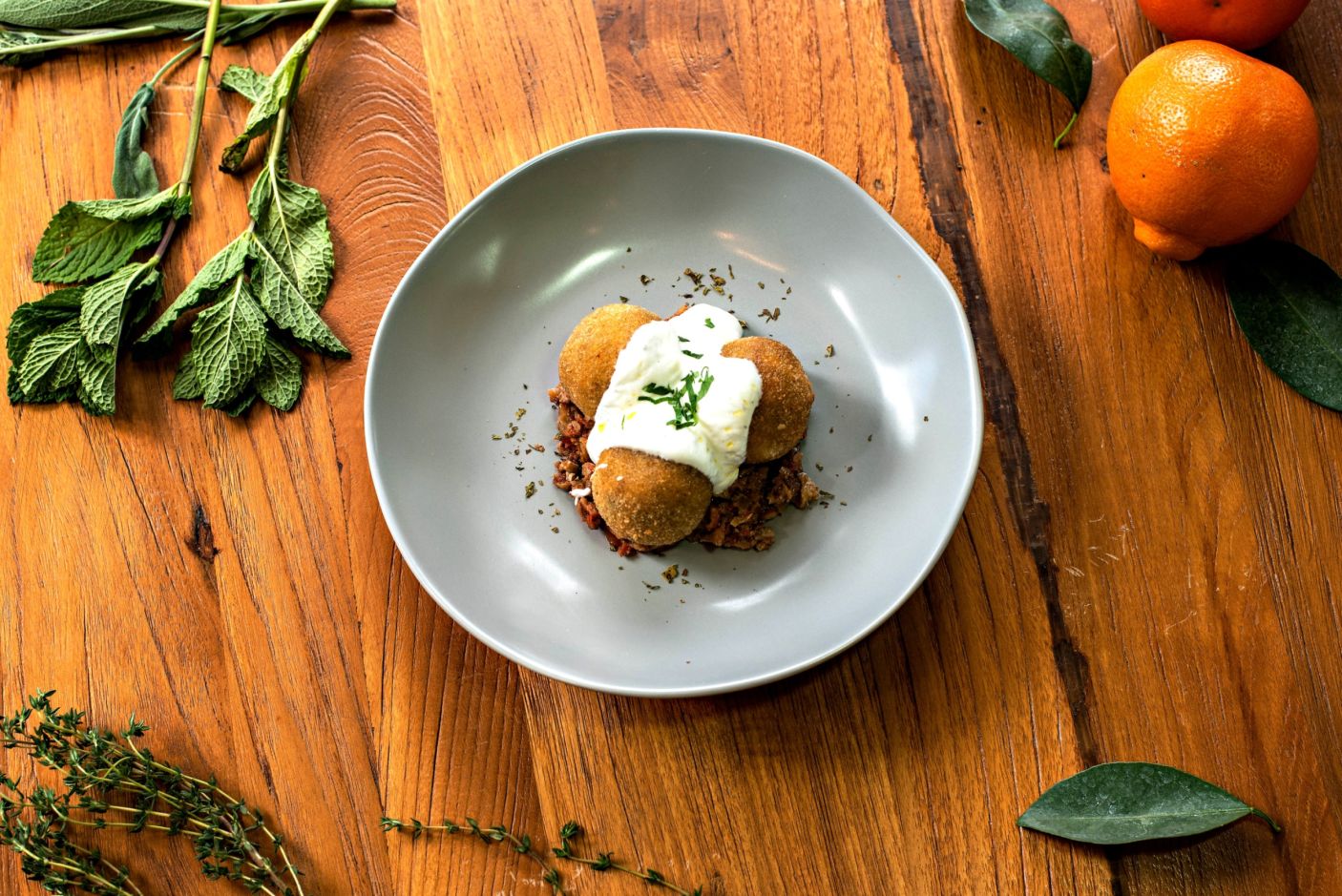
“When I sell a dish, I try to have a story behind it. It is not only feeding the stomach. This all culminated in opening the first restaurant in Manhattan that tells the story of the Palestinian kitchen, in particular my mother’s kitchen. I am proud that I was able to achieve that and leave such a footprint in the city,” he remarks.
Daka’s love affair with food started during his childhood and grew from the mere sensory explosion that traditionally accompanies one’s earliest bites to a deep appreciation of what every morsel represents. Growing up on a farm, Daka also understood food and its connection to the land and, by transitive property, his own.
“My favorite place was working with mom and helping her in the kitchen. I watched my mother turn those vegetables we harvested into mouth-watering meals. With her help and guidance, I mastered the recipes of many traditional Palestinian dishes. At only 12 years old, I perfected my first Bamya Belahme, a classic okra and lamb stew,” he recounts.
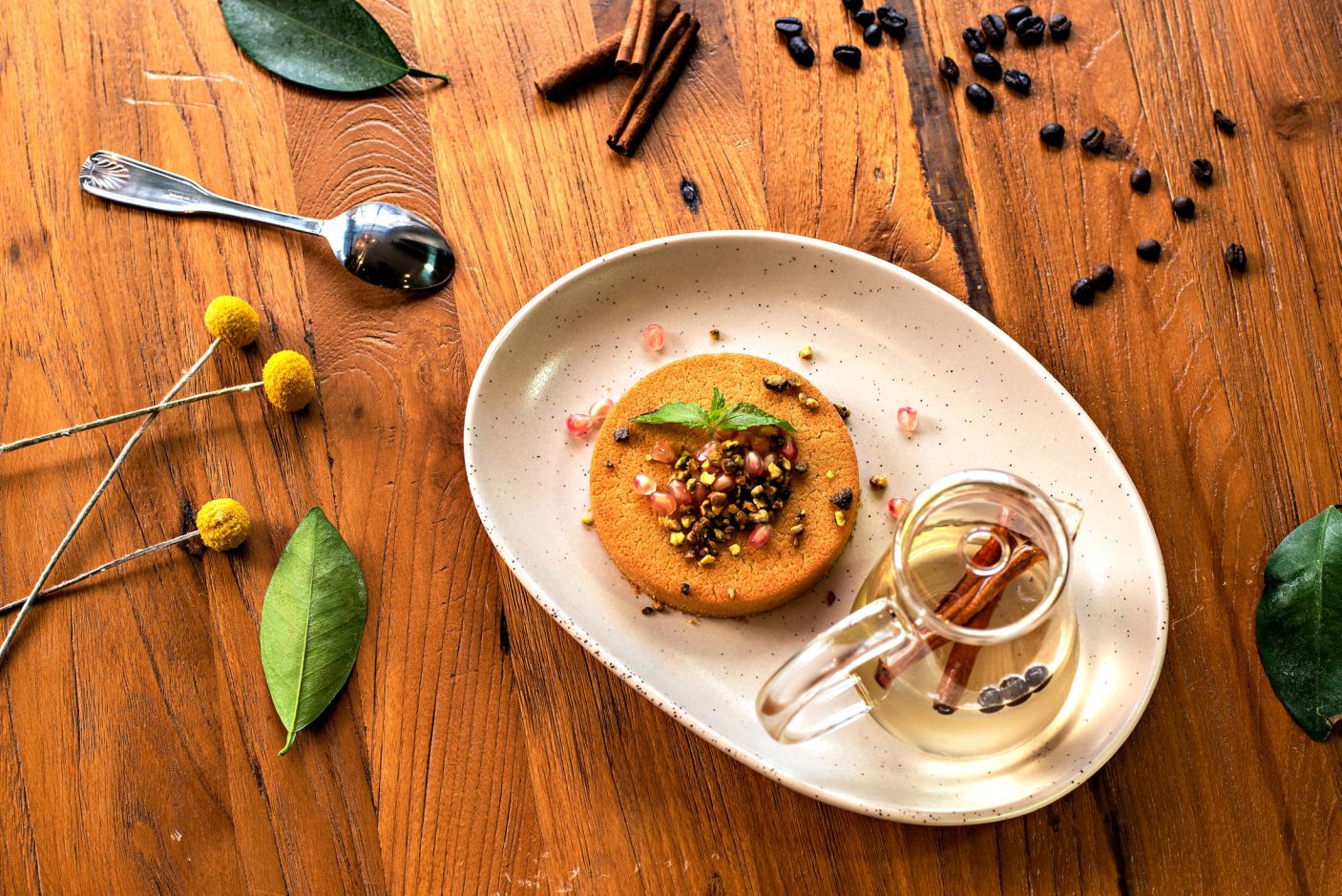
Five years later, at the age of 17, Daka got his first job in Tel Aviv, one of the MENA region’s most exciting food destinations, but even there, his mother’s cooking was ever-present.
“She would send me to Tel Aviv with pre-cooked meals, but I would still refuse to eat at my breaks. Instead, I would wait until I finished my shift and then walk for 30 minutes through Tel Aviv, to the fancier neighborhoods that were home to famous Israeli fine dining. I only wanted to eat her food alongside these successful restaurants. Somehow it felt [like] the proper tribute for her cooking,” he writes on the restaurant’s website.
Fast forward 20 years later, and Daka is still recreating his fond culinary memories and sharing them with the word, one dish at a time, each a daring take on traditional Palestinian and Levantine classics.
Such displays of bravura include Qanoon’s imaginative Kibbeh Nayeh, which combines the dish’s traditionally gritty texture with that of steak tartare, each mouthful bursting with crisp Mediterranean flavors. Another cheeky creation is the restaurant’s homemade Knafeh, which perfectly packages the aromas and distinct flavors of the traditional Palestinian cheese-filled dessert with the bold texture of filo.
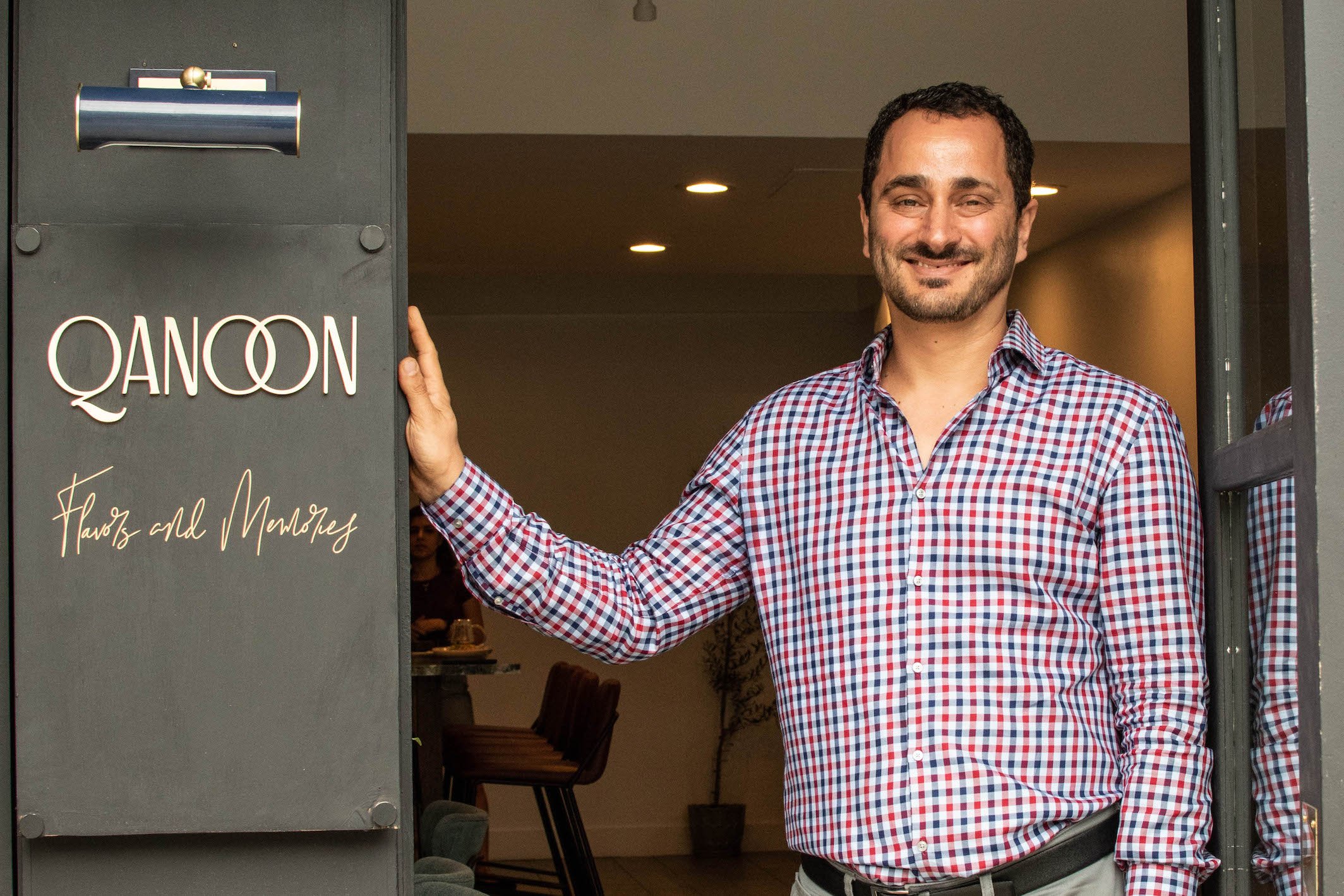
It is a culinary rendering of Daka’s own views on the weaponization and politicization of food and culture in the age of identity politics. But at a time when Israelis and Palestinians are more polarized than ever, can the dining table replace the negotiating table?
“Food has a magic power, especially when it is delicious. It brings people from all different backgrounds to sit [at] one table, regardless of their political agenda,” he says. “I like to use food as a tool to bridge differences between people, not bring them apart. I am emotionally connected with Palestinian food and it is part of my identity, but I don’t think politics should be involved.”
But Qanoon is still more than just a restaurant because food is seldom just fuel. It is also our first introduction to who we are, where we come from and what we love. Few things can shape one’s future self like a first meal.

In a vibrant metropolis like New York City, restaurants like Qanoon have the potential to not only demarcate identities, but also to refine Manhattan’s palate to recognize what was once misappropriated and erased.
“There are a lot of stereotypes that exist. Knowledge is power. The more you know about the culture, people, [and] food, the more these stereotypes get [dismantled],” he remarks. “I am all for opening a healthy conversation on the origins of particular dishes, the fusion of cultures, and the evolution of cuisines without involving identity politics in the middle.”
Beyond enriching Chelsea’s diverse culinary scene, Daka is attempting a far greater feat: archiving Palestinian food and heritage for future generations.
“Archiving Palestinian food and culture is needed regardless of the debate, like any other distinct culture. My mission is to feed people and introduce them to experiences [and] cultures that they are not necessarily used to,” he says. “[To] share memories and stories from the time I was raised on a farm with nine siblings. Qanoon is place where people can meet, share memories and connect. I believe this is a good introduction to who I am, my culture and my food with the hope [that they] will be preserved.”
Check out Qanoon on Facebook and Instagram.




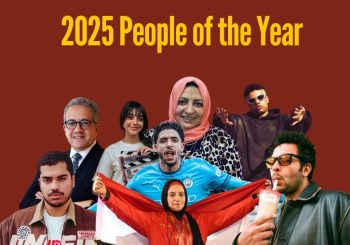
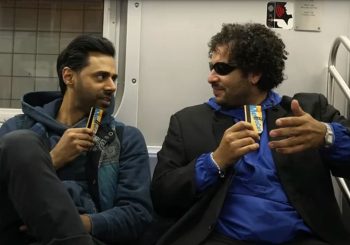
Comment (1)
[…] To Tarek Daka, introducing Manhattan to Palestinian cuisine through … and Arab culture, from the music, to the overall cozy Mediterranean ambiance. Source link […]